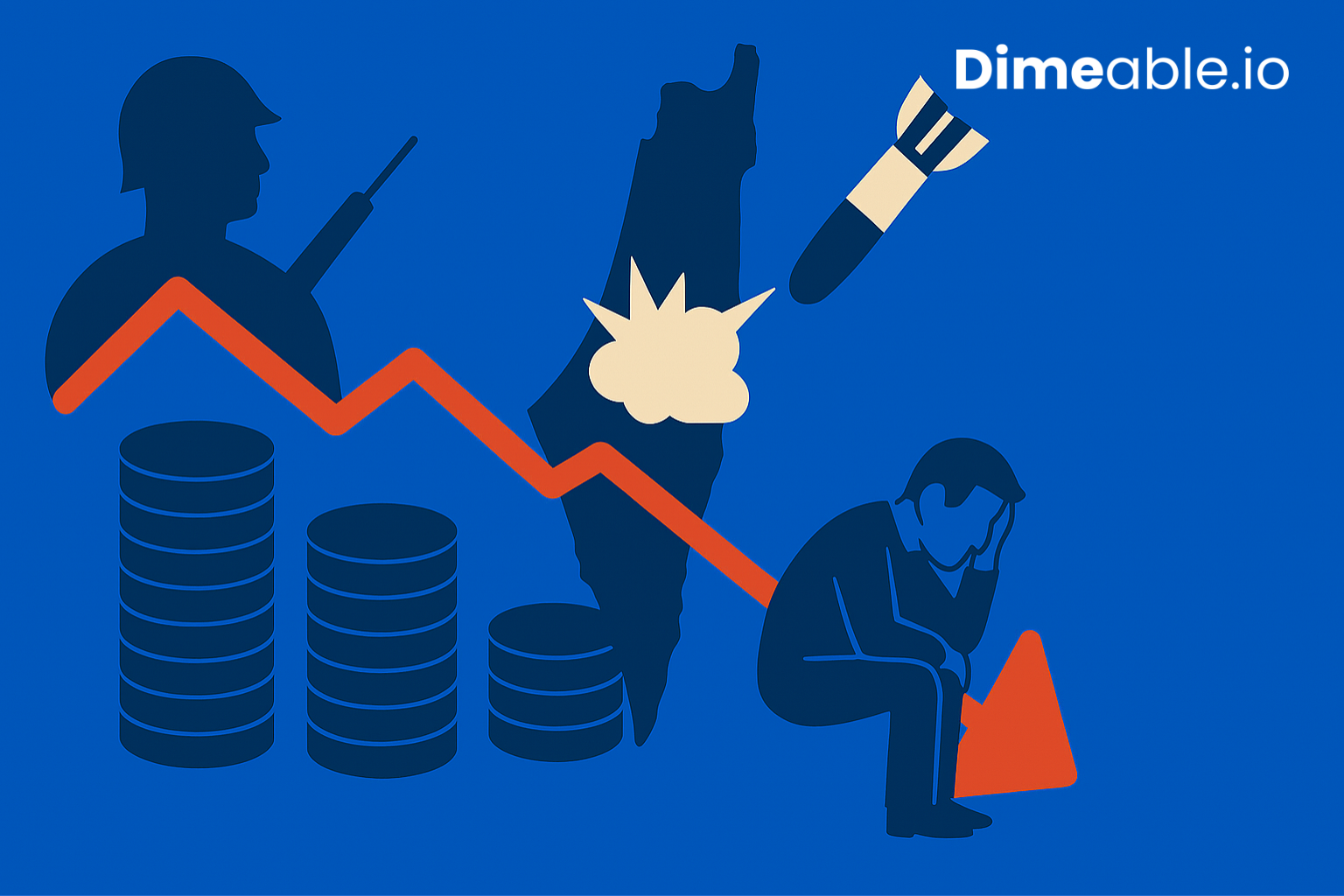Let me take you back—not to ancient history, not even to the last century, but to a grim, ongoing tale unfolding in real time: the Israel-Palestine conflict. Now, we’ve all seen the headlines, the footage, the heartbreak. But there’s a dimension that rarely makes the 9 PM bulletin: the economic fallout of genocide.
Yes, genocide—a word that stings. But call it what it is. What’s happening in Gaza is not just a humanitarian catastrophe; it’s a slow-motion economic implosion with ripples that hit much farther than the Middle East. And if you’re in finance, you’d better believe it’s your business too.
What Happens in Gaza… Doesn’t Stay in Gaza
We often talk about war in terms of “boots on the ground,” but let’s talk about stocks in freefall and supply chains in limbo.
Energy Markets Are Holding Their Breath
Let’s start with oil. Israel’s aggressive military operations threaten to escalate into a broader Middle Eastern conflict. Every time this happens, oil prices get twitchy. If Iran, Lebanon, or any Gulf country gets dragged in—even by accident—we’re talking serious price shocks.
More war ➝ regional instability ➝ energy market panic ➝ higher oil prices ➝ inflation everywhere.
And guess what inflation loves to kill? Economic growth. Central banks hate it. Investors flee from it. It’s a domino effect, and Gaza is the first tile.
Death by Disruption: Gaza’s Humanitarian Crisis is an Economic One Too
You might think, “Palestine has no real economy, so what’s the big deal?”
Well, think again.
The decimation of Gaza has:
-
Crushed regional investor confidence: International money hates instability. Countries like Egypt and Jordan—already financially stressed—now see investor pullback.
-
Increased refugee outflows: That’s not just a humanitarian issue; it stresses neighboring economies. Lebanon is already on the brink. Add more refugees, and boom—economic chaos.
-
Drained aid budgets globally: Billions in humanitarian aid are rerouted to conflict zones. That’s money not going to green energy, education, or debt relief in Africa.
So yes, war has an invoice—and the world is footing the bill.
The UN’s Moral Decline Has a Dollar Sign
Let’s address the UN-shaped elephant in the room.
Once the moral compass of international diplomacy, the United Nations is now… well, mostly tweeting. Its failure to enforce meaningful sanctions or resolutions against Israel sends a loud message:
Rules-based order? Only if you’re not powerful enough to break them.
This erodes global trust in international institutions, which is not just a geopolitical problem—it’s a market confidence problem. Institutional investors thrive in environments governed by predictable rules. The more the UN fails, the more volatile things get.
Follow the Money: Who’s Really Paying for This War?
The truth is, we all are.
-
Consumers pay more at the pump.
-
Investors watch safe havens erode.
-
Developing nations get less financial support.
-
Taxpayers in the West fund weapons that perpetuate the war.
-
Aid organizations deplete their budgets to plug never-ending holes.
And let’s not forget: Gaza is being rebuilt and destroyed again—over and over. That’s not development. That’s economic groundhog day, and it’s costing everyone.
The Elephant in the Stock Exchange: Moral Capital Matters
What Wall Street doesn’t always understand is that human capital is economic capital.
Thousands of Palestinian professionals—doctors, engineers, academics—are being lost. Not just displaced. Lost. Forever.
That’s future productivity evaporated.
No startups.
No inventions.
No economic output.
A genocide isn’t just an ethical stain—it’s a GDP hole waiting to widen.
So, What Can the Finance World Do?
Finance doesn’t like blood on its spreadsheets. But it can’t ignore it either.
-
Divest from unethical portfolios: ESG isn’t a buzzword. It’s a weapon.
-
Demand transparency: Track where your money flows—does it fund war indirectly?
-
Lobby for peace: Yes, Wall Street has lobbyists too. Use them.
-
Support ethical aid: Direct capital to rebuilding futures, not fueling fire.
FAQs: Let’s Break It Down
Q: Why should finance professionals care about the Israel-Palestine conflict?
Because war destabilizes markets, disrupts global supply chains, and erodes investor confidence. This is about your portfolio’s health, not just politics.
Q: Is the UN completely powerless?
Not exactly, but its inaction in this crisis weakens its influence, which in turn undermines international market stability and law-based trade.
Q: Is there a direct financial cost to the genocide in Gaza?
Absolutely. From aid redirection and refugee costs to regional investment pullbacks and oil price volatility, the financial impact is very real.
Q: What role does the private sector play in peace?
A big one. Corporations can divest, invest ethically, and influence public policy with their dollars.
Q: Can genocide have a long-term economic effect?
Yes. Loss of human capital, destruction of infrastructure, and regional instability can hurt development for generations.
Final Thought: Numbers Don’t Cry, But We Should
It’s easy to talk in numbers. GDP. Oil prices. Market confidence.
But behind every digit is a human life, a missed opportunity, a dream extinguished.
And if we let that slide in the name of “it’s complicated,” then we’ve not only lost our ethics—we’ve made a bad economic bet.
Because war, unchecked, is the most expensive business on Earth.


